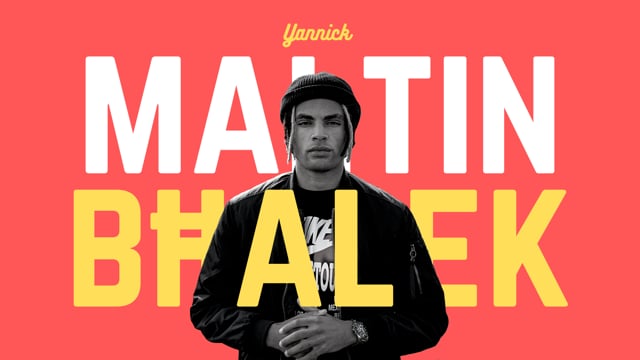Young, black, Maltese: Birkirkara footballer Yannick Yankam on the reality of racism in Malta
Maltin Bħalek | Yannick Yankam | The Birkirkara FC player and R&B artist Yannick Yankam discusses fighting racism on and off the field as a young black man in Malta


Yannick, do you even feel ‘different’?
Aehm, no... not ‘different’, I’m quite happy and comfortable with who I am. But there are certain things that remind you of being different to others around you. For example, when you go someplace and they start speaking to me in English. It’s ‘micro’ stuff like that.
Because it’s down to the way you ‘look’...
Yeah, I’m not the expected ‘traditional’ Maltese but I’m 100% Maltese.
And have there been moments where you realised there was this ‘difference’?
They’ve been small moments, in school for example, with a different name...
On social media, it is often said the Maltese are racist... do you agree?
I think many Maltese are lacking information. There’s been a massive change in the last 20 years, say, in the way of how we expect a Maltese to look like, there’s that influx from tourism, my dad, he’s Camerooneese when that wave of migrants came, now their children are coming of age.
It’s the next generation...
Yeah, you have kids that are half-caste. More black Maltese who were born here. We’re all Maltese, but everyone has to understand that a black man is also Maltese.
Do you feel you’re expected to justify yourself out in the field, or when out with friends, to fit in?
No... I’m lucky to have great, supportive friends. But as a kid it wasn’t like that. As a kid you don’t always want to stand out. Take hair texture – that’s ‘different’, there was a time where I’d always wear a cap. I didn’t understand the beauty of that hair so I’d hide it. Now I embrace it and I love it.
So you were trying to shut out what made you unique just to be like the rest...
There were moments where I didn’t want to be the one people say: ‘who’s this guy?’
or ‘from where is he?’ You just want walk in a room and feel normal.
What about when you’re on the field. Have you had direct experiences of racism?
Yes, I did. And I’ve seen it suffered by team-mates of mine.
What’s it like? How’d you describe it?
Say, an opponent... and this didn’t just happen when I grew older but even as a kid, you know, things that happen...you get called the ‘n’ word just so they rile you up. It has happened. They try to knock you by calling out the colour of your skin. You get supporters making sounds, comments...
What kind of sounds?
Monkey chanting, for example...
And how do you react? We’ve had entire teams leaving the ground in protest. How do you react?
Honestly, I don’t know how I would react had it have to happen today. Every person of colour has their way of reacting to it. You have those who will play it off, win the game and deal with it later. There’s those who don’t accept disrespect either off or on the pitch.
So it’s like something down to character and personal experience?
Character... I don’t know what I’d do...
It would be a question of the moment...
Yeah.
There’s often racist commentary on Facebook and social media... how do you feel about that?
These platforms have given a voice to people who don’t have the courage to tell it to your face... They feel safe saying it behind a screen. You treat them the same way: you ignore them. I mean, it’s their ignorance speaking. You can’t change certain things.
But you do find people who are putting their face, on video, to racist comments...
I spoke about it last year, and I had negative comments...
You had spoken about it...
I had spoken out. It comes with it. You have to accept it. I mean, you never really accept it... but whether you speak out or not, you’re still going to get it.
It’s easy saying nothing...
Yeah it’s easy...
It’s not the right thing to do...
It’s not what have decided to do.

.png)



















